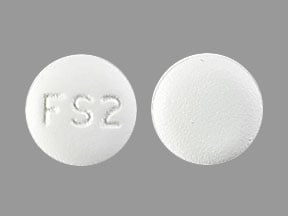
Olmesartan Coupons & Savings Card – Discount Prices from $16.55
Generic for: Benicar
My prescription
Edit
20MG, Olmesartan (90 Tablets)
Select pharmacy

CVS
$30.01
COUPON PRICE
Walmart
$16.55
COUPON PRICE
Albertsons
$21.67
COUPON PRICE
Walgreens
$24.82
COUPON PRICEOlmesartan savings card
Show this card to your pharmacist
Walmart
$16.55
BIN
ID
PCN
GRP
019876
LH9871E49B
CHIPPO
LHX
Powered by
More prescriptions for hypertension
More prescriptions for hypertension
Price history for Benicar (brand) & Olmesartan (generic)
90 Tablets, 20MG
Average retail price for Benicar
Average retail price for Olmesartan
Average SaveHealth price for Olmesartan
Our price history data is based on aggregated prescription data collected from participating pharmacies in America. Our prescription data updates daily to reflect the latest price changes. If you notice a missing data point, it means there wasn't sufficient data available to generate a monetary value for that date.
We analyzed Olmesartan prices for (20MG, 90 Tablets) over the last 12 months. The average retail price was $67.14, while the average price using the SaveHealth discount card was $49.42. That's a savings of approximately 26.39% when using our Olmesartan coupon.
Compared to the generic version, Benicar had an average price of $1651.24 over the same time period. With the SaveHealth savings card, Olmesartan is 97.01% cheaper on average than Benicar.
*Retail prices are based on pharmacy claims data, and may not be accurate when we don't have enough claims.
Olmesartan dosage forms
Dosage Quantity Price from Per unit 5MG 30 Tablets $4.56 $0.15 5MG 90 Tablets $15.17 $0.17 5MG 1000 Tablets $67.50 $0.07 20MG 90 Tablets $16.55 $0.18 20MG 30 Tablets $5.02 $0.17 20MG 1000 Tablets $67.50 $0.07 40MG 30 Tablets $6.33 $0.21 40MG 90 Tablets $20.48 $0.23 40MG 1000 Tablets $84.70 $0.09
| Dosage | Quantity | Price from | Per unit |
|---|---|---|---|
| 5MG | 30 Tablets | $4.56 | $0.15 |
| 5MG | 90 Tablets | $15.17 | $0.17 |
| 5MG | 1000 Tablets | $67.50 | $0.07 |
| 20MG | 90 Tablets | $16.55 | $0.18 |
| 20MG | 30 Tablets | $5.02 | $0.17 |
| 20MG | 1000 Tablets | $67.50 | $0.07 |
| 40MG | 30 Tablets | $6.33 | $0.21 |
| 40MG | 90 Tablets | $20.48 | $0.23 |
| 40MG | 1000 Tablets | $84.70 | $0.09 |
